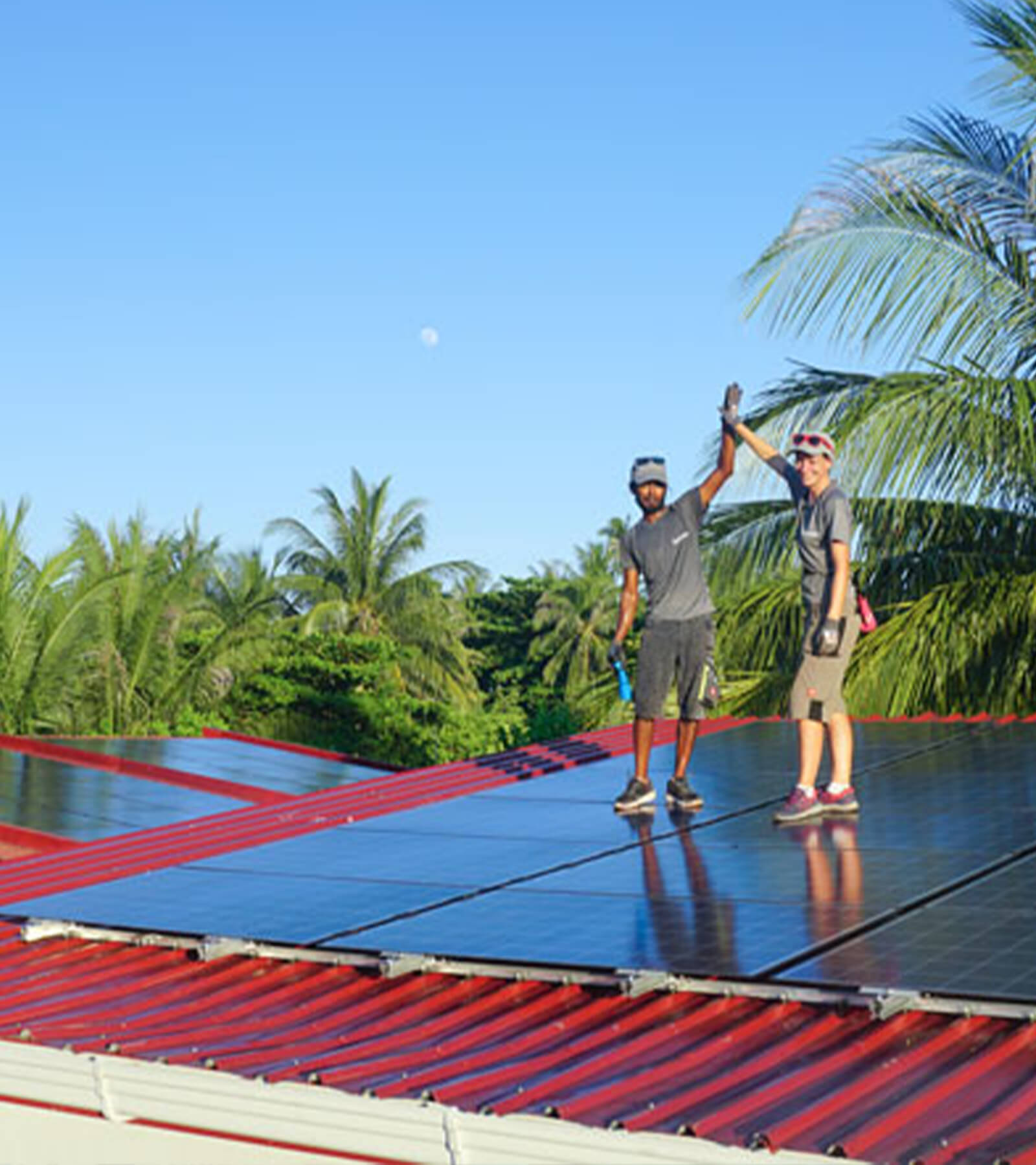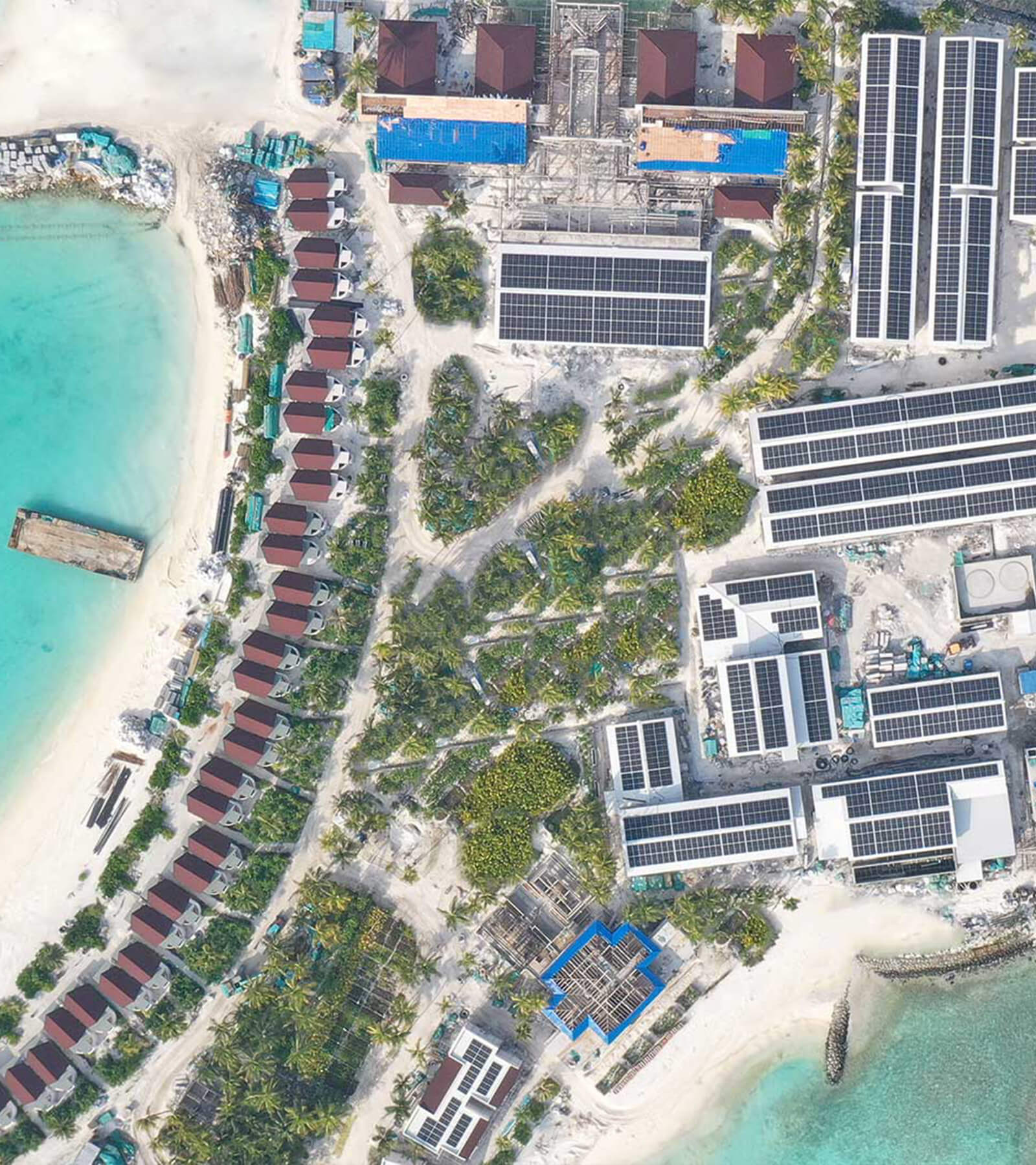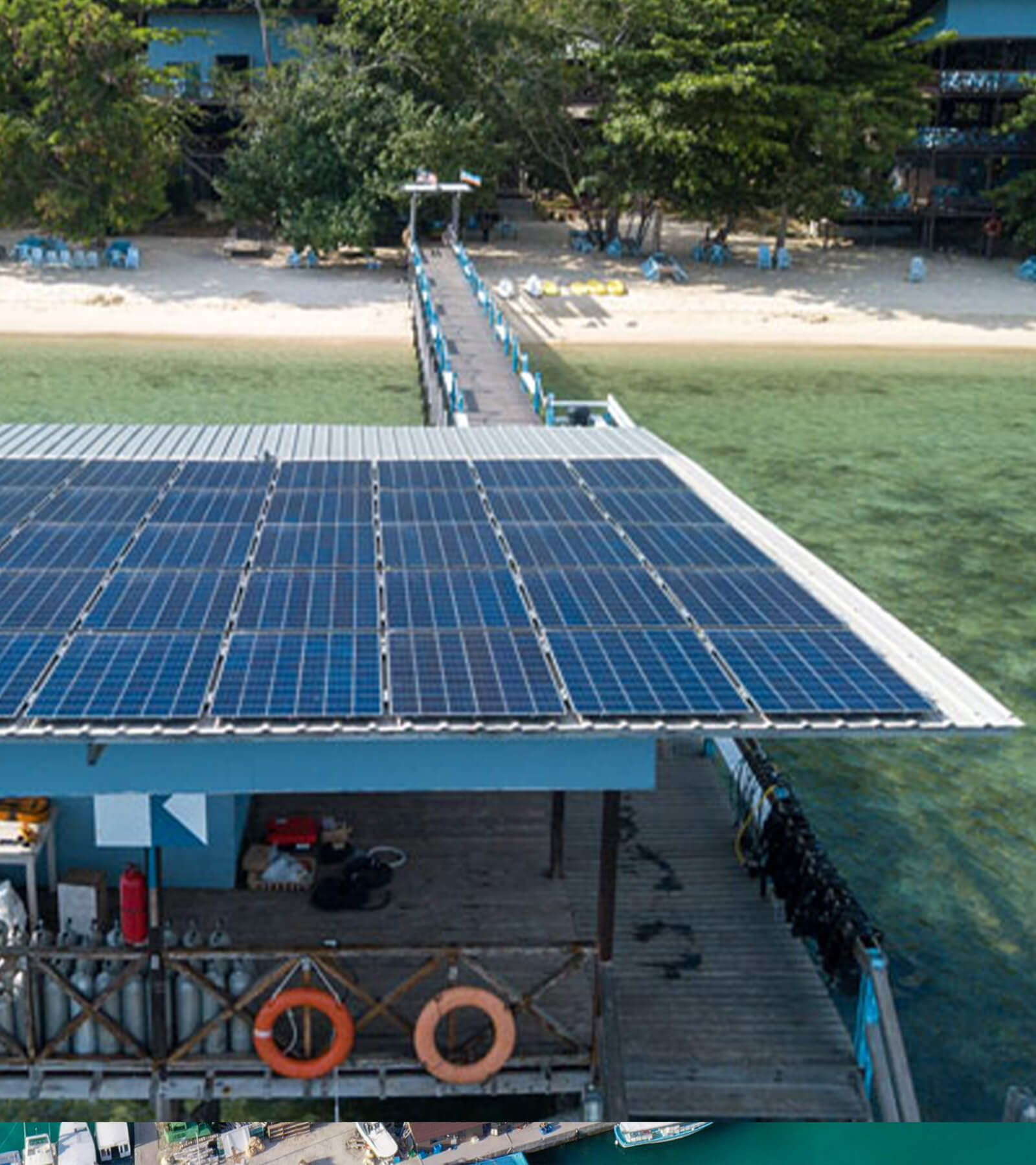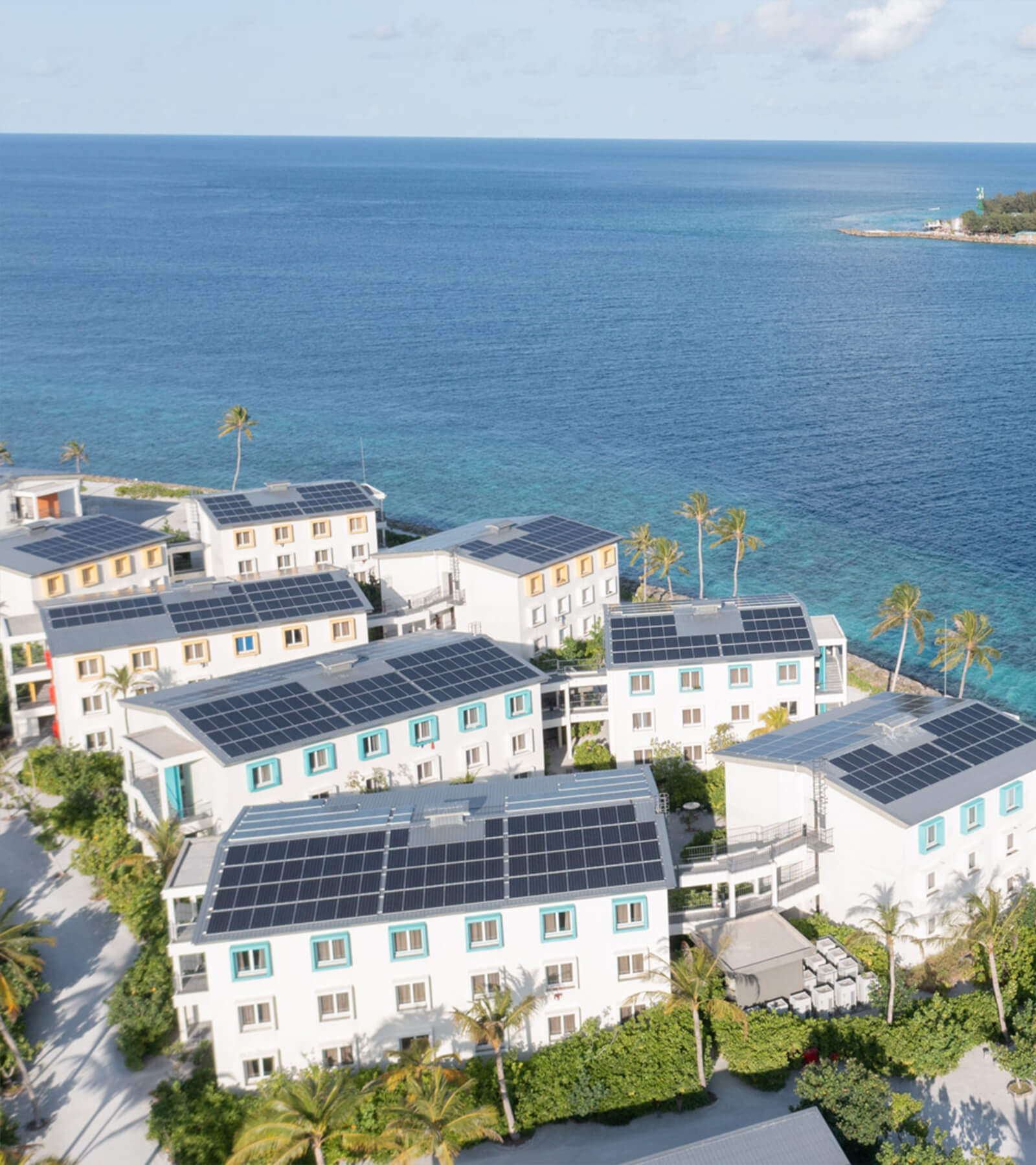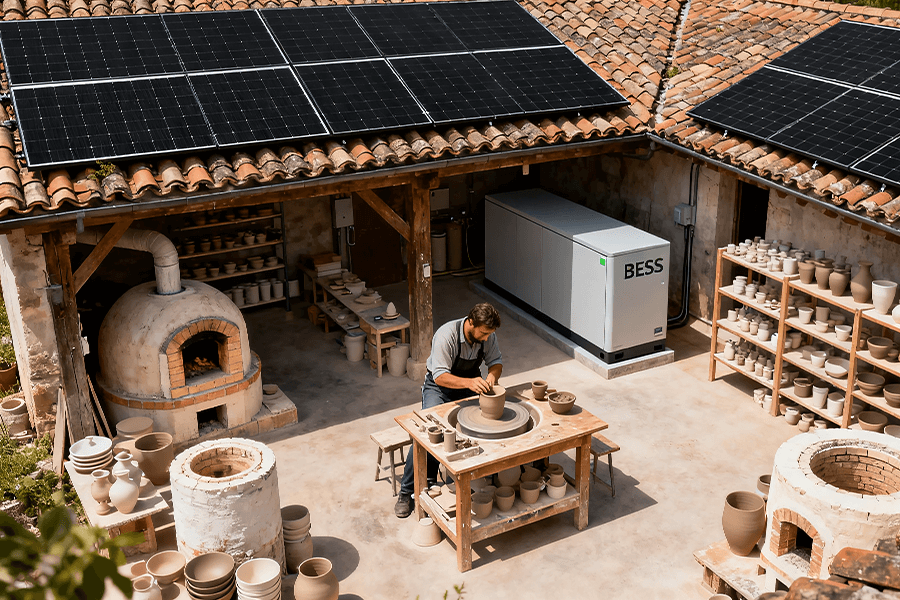
The Power Crisis Haunting Europe’s Ceramic Craftsmen
Picture this: You’ve spent 72 hours monitoring a kiln full of hand-painted vases, each detailed with 17th-century Florentine patterns. Then the grid flickers. In 60 seconds, your €9,600 batch cracks beyond repair. For Europe’s 800+ artisanal ceramic workshops, this isn’t a horror story—it’s a weekly reality.
Data from the European Council of Ceramic Artisans (ECCA) reveals that 65% of these studios face power fluctuations or outages every week . The financial toll is devastating: A single 100-piece hand-painted ceramic set (common for luxury tableware) costs €12,000+ to replace if ruined by unstable power .
Take Croatia, home to over 200 ceramic businesses—70% are family-run, operating out of 19th-century buildings with zero space for bulky backup generators . These aren’t factories; they’re living museums of craft. Enter BESS containers: compact, quiet, and as reliable as a master potter’s steady hand. Think of them as your ceramics’ “power bodyguard”—no cape, just LiFePO4 batteries and a talent for saving €10k batches.
BESS Containers: The Unsung Hero of Ceramic Production
Ceramic making is a high-stakes dance with precision, where every step requires meticulous attention to detail. Kilns, the heart of ceramic production, need to maintain a consistent temperature of 1200–1300°C for 24–72 hours, a critical factor in ensuring the durability of stoneware. Any deviation from this temperature range can lead to cracks and imperfections in the final product. Similarly, pottery wheels must operate smoothly, as even the slightest stutter mid-spin can result in a lumpy, unsalvageable bowl. This is where BESS (Battery Energy Storage System) containers come in, turning the anxiety of “what if the power fails?” into the confidence of “who cares?” Let’s explore how they achieve this.
Kiln Firing: No More Cracked Masterpieces
Kilns are the divas of the ceramic world, demanding constant temperature and humidity control. Even a 1-hour outage during the firing process can turn hours of hard work into landfill waste. Consider the case of a renowned Florence workshop specializing in hand-painted terracotta vases. Last year, a 3-hour grid fluctuation hit during a critical firing cycle, threatening to ruin an entire batch of vases. However, thanks to their 300kWh Maxbo Solar BESS container, the kiln’s temperature never dropped below 1250°C, saving 80 vases worth a total of €9,600.
Technical Breakdown of BESS Efficiency
The effectiveness of Maxbo’s BESS containers lies in their advanced technology:
- LiFePO4 Batteries: Utilizing the most stable battery chemistry for industrial use, LiFePO4 batteries offer high energy density, long cycle life, and enhanced safety features.
- Triple-layer BMS (Battery Management System): This sophisticated system monitors and controls the battery’s performance, ensuring optimal charging and discharging. It maintains the voltage within 0.1% of the setpoint, a level of precision that surpasses even the most skilled barista pouring a latte with a 0.1oz margin of error. For kilns, this precision means no thermal shock, no cracks, and no heartbreak.
Pottery Wheels & Glazing: Keep the Spin (and Shine) Going
Pottery wheels are highly sensitive to power disruptions. An unexpected shutdown mid-spin can turn a smooth clay bowl into a lumpy mess, requiring full rework and incurring significant costs in terms of time, labor, and materials. A Madrid workshop learned this the hard way when, in 2023, a 2-hour outage ruined 15 half-finished ceramic plates, resulting in €3,800 in rework costs. Determined to prevent future losses, they installed a 250kWh Maxbo BESS container. Three months later, when a 2.5-hour outage hit, the BESS seamlessly took over, keeping 6 pottery wheels and 3 glazing machines running smoothly and avoiding €5,000 in rework costs.
Cost-Benefit Analysis for Busy Studios
The financial advantages of implementing BESS containers are clear, especially for high-volume workshops. Consider the following breakdown for a typical outage:
|
Cost Component
|
Estimated Expense
|
|
Skilled Labor (80 hours at €40/hour)
|
€3,200
|
|
Materials (clay, glazes, tools)
|
€1,800
|
|
Total Rework Cost per Outage
|
€5,000
|
With an average BESS payback period of 6–8 months for high-volume workshops, the investment in BESS containers quickly proves to be a cost-effective solution, providing peace of mind and protecting the bottom line.
Design That Loves Tradition (and Tiny Yards)
European ceramic workshops are rarely in modern warehouses. They’re tucked into rural barns, urban alleyways, or historic buildings—you can’t just plop a noisy diesel generator next to a 1850s kiln. BESS containers are engineered for this chaos.
Fits Like a Glove (Even in 14m² Backyards)
Maxbo’s 20ft air-cooled BESS containers measure just 6.06m x 2.44m x 2.59m—smaller than a compact car’s parking spot . A Lisbon workshop (operating out of a 1920s cottage) installed a 220kWh unit in their 14m² backyard—no demolition, no structural changes, just a quick connection to their electrical panel. Compare that to a diesel generator, which needs 20m² of space plus ventilation clearance (to avoid carbon monoxide risks).
|
Feature
|
Maxbo 20ft BESS Container
|
Diesel Generator (50kW)
|
|
Footprint
|
14.8m²
|
20m²
|
|
Installation Time
|
60 minutes (plug-and-play)
|
2–3 days (concrete pad + wiring)
|
|
Structural Modifications Needed
|
None
|
Concrete foundation + ventilation ducts
|
|
Noise Level (at 10m)
|
45 dB (quieter than a fridge)
|
85 dB (louder than a vacuum cleaner)
|
|
Source:
|
Quiet as a Mouse (Good for Crafting, Great for Neighbors)
Diesel generators roar like jet engines—bad for delicate glazing work (noise makes hands shake, leading to uneven coats) and worse for residential areas. A Vienna workshop (located in a residential neighborhood) used to get 5–7 noise complaints monthly from their old diesel generator. They swapped it for a Maxbo BESS container, and complaints dropped by 90% .
Why the silence? Maxbo’s containers have sound-dampening rockwool insulation and no moving parts (unlike generators with engines and fans). At 45 dB, they’re quieter than a library (50 dB) or a conversation (60 dB)—perfect for studios where focus is as critical as clay quality.
Save Money, Go Green (and Check EU Boxes)
BESS containers aren’t just about avoiding disasters—they’re about making your workshop more profitable and sustainable. For European artisans, that’s a double win: EU “Cultural Craft Sustainability” certification (required for grants and luxury brand partnerships) demands both cost efficiency and renewable energy use.
Peak Shaving: Slash Your Energy Bill by 32%
Kilns run 24/7, but they guzzle the most power between 8 AM–6 PM—peak hours when electricity costs 3x more than off-peak (10 PM–6 AM). A Milan workshop specializing in high-end porcelain installed a 280kWh Maxbo BESS container to store off-peak power. The result? They cut peak demand by 32%, saving €7,200 annually .
Let’s break down the savings (using 2025 EU average electricity rates ):
|
Metric
|
Value
|
Calculation
|
|
Peak Electricity Cost
|
€0.30/kWh
|
|
|
Off-Peak Electricity Cost
|
€0.10/kWh
|
|
|
Kiln Power Use (Daily)
|
100kWh
|
|
|
Daily Savings
|
€20
|
100kWh x (€0.30 – €0.10)
|
|
Annual Savings
|
€7,300
|
€20 x 365 days
|
Note: The Milan workshop’s €7,200 annual savings aligns with this math (minor differences come from seasonal rate fluctuations).
Solar Integration: Power 50% of Production with Renewables
Solar panels are great for generating clean energy—but they only work when the sun shines. Kilns, however, need power 24/7 (even at night, when firing cycles often run). BESS containers solve this “sunny vs. needed” gap by storing solar energy for off-hours use.
A Berlin workshop paired 180kW rooftop solar panels with a 300kWh Maxbo BESS container. Now, 50% of their production power comes from renewables—enough to qualify for EU “Cultural Craft Sustainability” certification . The payoff? Luxury home decor brands (like Italy’s Poltrona Frau) now partner with them, as consumers will pay 20% more for “sustainably made” ceramics . Plus, they received a €12,500 EU grant for small craft businesses—covering 40% of their BESS container cost .
Why We (Maxbo Solar) Are Your Perfect Craft Partner
At Maxbo Solar (www.maxbo-solar.com), we don’t just sell BESS containers—we build solutions for craftsmen who care about preserving tradition and staying profitable. Here’s why 70% of European ceramic workshops that invest in BESS choose us:
- EU-Compliant, Through and Through: Our containers meet IP67 waterproofing (they can handle rain, snow, and even temporary flooding) and operate in temperatures from -30°C (Sweden’s winters) to 50°C (Spain’s summers) . They also pass IEC 62933 (the global safety standard for industrial battery systems), so you’ll never fail an inspection.
- Customizable to Your Studio’s Quirks: Need a 220kWh unit for a Lisbon backyard? A 600kWh system for a Florence workshop with 3 kilns? We offer 20ft (200–600kWh) and 40ft (600kWh–2MWh) containers—all customizable. We even add your workshop’s logo to the container (because your brand deserves to shine, too).
- Fast Setup, Zero Headaches: Our towable BESS containers are plug-and-play—install in 60 minutes (faster than you can fire a small mug!). We also offer 24/7 EU-based support (no waiting for overseas calls). Need a custom unit? We deliver in 14 days—half the industry average.
- Safety First (Always): We use LiFePO4 batteries (no thermal runaway risk—unlike lithium-ion) and built-in FM-200 fire suppression systems (used in museums to protect art). DNV GL, the world’s top safety certifier, rated our systems with “negligible fire propagation risk” . Your ceramics (and your studio) are safe with us.
Conclusion: The Future of Craft Is Stable (and Powered by BESS)
BESS containers aren’t just gadgets—they’re craft protectors. They save your €10k batches from power outages, fit in your tiny backyard, keep the peace with neighbors, and help you sell more to eco-conscious buyers. For European artisanal ceramic workshops, they’re not a luxury—they’re a necessity.
Our prediction? By 2035, 40% of Europe’s high-end ceramic workshops will have a BESS container. Why? Because you shouldn’t risk your legacy (or your livelihood) on a finicky grid.
At Maxbo Solar, we’re here to help you craft with confidence. Visit www.maxbo-solar.com today, and let’s keep your kilns hot, your ceramics perfect, and your tradition alive.

